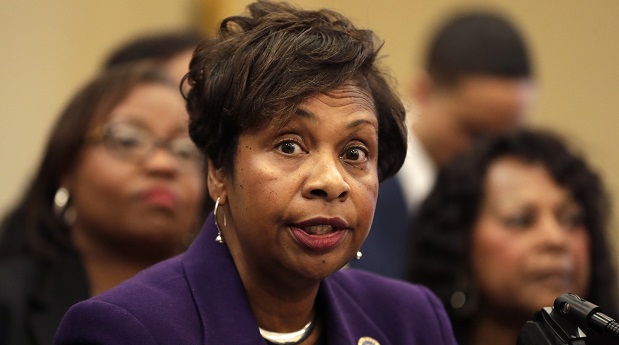Maryland Democrats propose barring anyone under 25 from being convicted of felony murder, a move that has raised concerns about potential benefits to gangs and criminals and further endangering cities such as Baltimore.
The proposed bill, known as the Youth Accountability and Safety Act, was introduced earlier this year by Democrat Charlotte Crutchfield, one of three delegates representing District 19. If passed, the bill would prevent “a person younger than age 25 at the time of the offense from being convicted of murder in the first degree under the State’s felony murder provisions, which classify a murder as being in the first degree if it was committed during the perpetration or attempted perpetration of specified crimes.”
If passed, the bill would prevent “a person younger than age 25 at the time of the offense from being convicted of murder in the first degree
Critics argue that this proposal could lead to a rise in violent crime and hinder the ability of law enforcement to hold perpetrators accountable. As Maryland continues to grapple with high levels of crime, it’s essential to find effective ways to promote safety and accountability while protecting the rights of all citizens.

The sponsors of the proposed Youth Accountability and Safety Act, all Democrats, argue that the frontal lobes of the brain are not fully formed until a person reaches at least 25 years old. Charlotte Crutchfield, J. Sandy Bartlett, Debra M. Davis, Aletheia McCaskill, David Moon, N. Scott Phillips, Karen Simpson, Nicole A. Williams, and Caylin A. Young claim that those who commit heinous crimes like felony murder may not have intended to do so.
Felony murder is defined as a person’s death during the commission of another felony, such as robbery. The proposed bill would prevent anyone under 25 at the time of the offense from being convicted of first-degree murder under the State’s felony murder provisions.
While supporters argue that this approach would provide young offenders with an opportunity for rehabilitation, critics have voiced concerns about public safety and the potential for abuse by criminals. As the debate around this issue continues, it’s crucial to find effective ways to promote accountability and prevent violent crime in communities across Maryland.
“I will never support removing felony murder for those under 25,” said Del. Lauren Arikan
“I will never support removing felony murder for those under 25,” said Del. Lauren Arikan, firmly opposing the proposed bill. She cited the case of a Maryland police officer who was murdered in the line of duty by a 16-year-old juvenile who was ultimately tried as an adult and convicted. “It’s an insult to the family of the victims,” Arikan added.
Del. Christopher Bouchat, the only Republican who supports the bill, posed a rhetorical question, “If minors cannot consent to sex or sign contracts, why are we treating them as adults in the judicial system?”
“If minors cannot consent to sex or sign contracts, why are we treating them as adults in the judicial system?” Bouchat said.
The proposed bill has stirred up strong emotions on both sides of the political spectrum. As the debate continues, it’s crucial to find a balance between promoting rehabilitation for young offenders and ensuring justice for victims and their families.
Del. Susan McComas (R) dismissed the Democrats’ justification for the proposed bill, stating, “Proponents of the bill say that the human brain is not fully formed in the frontal lobes until age 25. But yet, we’re doing other things in the General Assembly, letting children vote earlier and earlier, letting them get hormone-inducing drugs to change their sex.”
McComas also expressed concerns that the bill, if passed, would disproportionately benefit gangs and other criminal enterprises. “If this bill passes, you’re going to have kingpins, you’re going to have gangs use juveniles to do their dirty work,” she warned.
“If this bill passes, you’re going to have kingpins, you’re going to have gangs use juveniles to do their dirty work,” she warned.
As the debate over the proposed bill continues, it’s essential to consider the potential consequences and ensure that any legislation prioritizes the safety and well-being of Maryland’s communities.
While the proposed bill has faced significant opposition, this isn’t Delegate Charlotte Crutchfield’s first attempt at passing criminal justice reforms. In 2021, she introduced similar legislation that would have prohibited charging “children” with first-degree murder. However, the bill did not gain much support.

Crutchfield isn’t the only Maryland official advocating for more lenient criminal justice laws for young offenders. Maryland Secretary of Juvenile Services Vincent Schiraldi has argued that individuals should not be tried in the adult criminal justice system until they reach at least 21 years of age. As the debate over criminal justice reform continues, it’s essential to find ways to prioritize rehabilitation and promote safer communities while ensuring justice for victims and their families.
The proposed bill, H.B. 1180, is still being debated in the Maryland State House, and it’s unclear when a vote will take place.
The proposed bill, H.B. 1180, is still being debated in the Maryland State House, and it’s unclear when a vote will take place.
Click here to download the proposed bill: hb1180
As lawmakers on both sides of the aisle continue to voice their opinions, it’s essential to prioritize effective strategies for addressing crime and ensuring accountability for all offenders. The outcome of this debate will have significant implications for Maryland’s criminal justice system and the safety of its communities.



